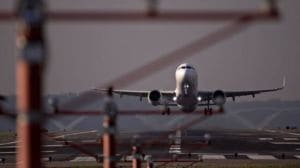In a fledgling country,perils for the Press
In a thatched hut in Juba,the capital of South Sudan,about 10 young men and women sat on lawn chairs made of brown plastic
BENNO MUCH LER
In a thatched hut in Juba,the capital of South Sudan,about 10 young men and women sat on lawn chairs made of brown plastic. They loudly typed on the computer keyboards in front of them. Two fans were blowing heavily. But the loud humming,which turned all speaking in the room into yelling,didnt come from them. It came from the backyard,and when it suddenly stopped,the young people saved their work. Minutes later their screens turned dark.
It was hours to deadline for The Citizen,until recently the only daily print newspaper in South Sudan,and its staff had to wait until the generator was refueled. Making a newspaper anywhere these days is not easy; making a daily newspaper in South Sudan can seem nearly impossible. Eighty per cent of the countrys roughly 10 million people are illiterate. Power losses,a scarcity of paved roads,scattershot Internet access and increasing tribal violence make it that much harder.
And yet,since its founding in 2005,The Citizen hasnt let down its readers a single day. Now the paper faces another challenge: a new military leadership. On a morning in mid-November,a reporter named Ater Garang Ariath entered the news hut where two of his colleagues were discussing the days events. The editor in chief,Nhial Bol,was elsewhere. He had other things to do: the papers supplier of newsprint had stopped supplying it,so The Citizen had to decrease its circulation to 2,000 copies from 6,000.
That day,Ariath,27,covered a dialogue forum for representatives of the South Sudanese media and national security services. He walked the mile to the event,since there was no bus stop nearby. Ariath said he made about 900 South Sudanese pounds a month,around $300. He has to write up to 40 articles and supports his family.
There is no one at The Citizen whose life hasnt been affected by the war. Another reporter,Joseph Lagu Jackson,was a former child soldier and learned how to use an AK-47 at the age of eight; the news editor received death threats from the Arab rulers when he was a radio journalist.
Ariath said the 16-page,English-language tabloid needed more editors. It is full of mistakes and typos,sometimes in the banner headline on the front page. Many reporters are not fluent in English. The paper needed more colour. In our pictures,Obama is white, he said.
Since South Sudans independence on July 9,several newspapers have been newly established. The countrys new constitution guarantees freedom of the press. But currently,that freedom is in jeopardy. In October,another newspaper,The Destiny,ran a column that described the marriage of President Salva Kiir Mayardits daughter as unpatriotic because she had married an Ethiopian. The columnist and the editor-in-chief were arrested by the National Security Services and held in prison for two weeks. The Destiny was shut down.
In December,Alfred Taban,a former BBC correspondent in Khartoum,started the Juba Monitor which is now South Sudans second English daily. The Juba Monitor is also printed at The Citizen which is the only newspaper with a printing machine in South Sudan.
At the dialogue forum for the media and security services,both sides were called on to get along with each other. A spokesman for the Sudan Peoples Liberation Army,or SPLA as the new countrys army is more popularly known,told reporters what they could cover and what would be risky for them. Many of the reporters who had come to the event said they had had bad experiences with the new military leaders. Ariath said when he once wrote about an officials business deals,he was warned against publishing it. The Citizen ran the article. The editor-in-chief,Bol,was arrested. Bol has been arrested three times since 2007 by South Sudanese authorities for articles that accused officials of corruption and mismanagement.
At 1 a.m.,four young men sat in the pale light of battery-powered halogen lamps inside the printing house. They folded fresh copies of the newspaper by handthe old German press couldnt fold them automatically.
At dawn,Jubas paperboys lined up in front of The Citizen. Ariaths article made it to the front pagewith no misplaced letter in the headline,just a comma: Deputy Minister Calls for Security,Media Cooperation.
Photos


- 01
- 02
- 03
- 04
- 05





























